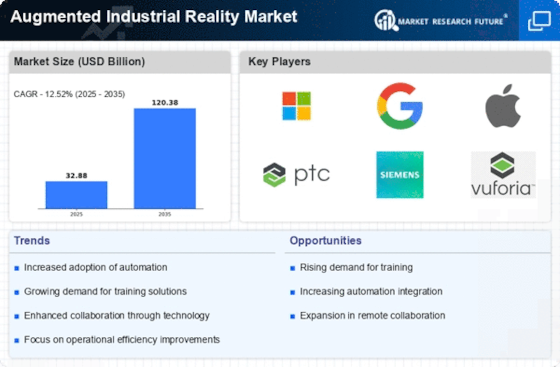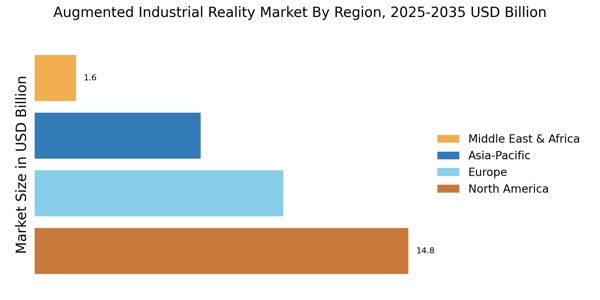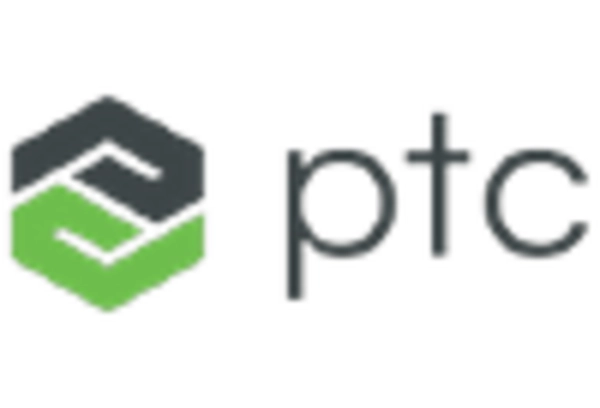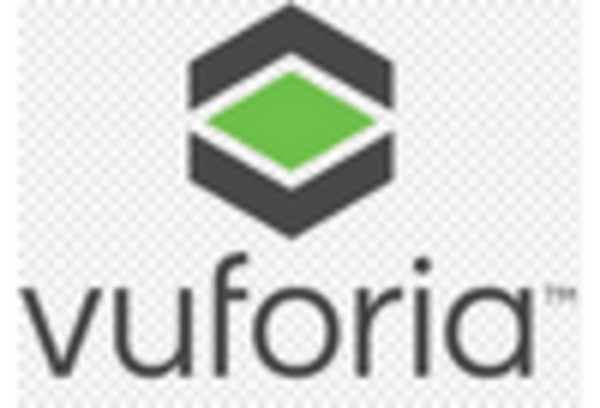Integration of IoT Technologies
The integration of Internet of Things (IoT) technologies into the Augmented Industrial Reality Market is driving substantial growth. IoT devices facilitate real-time data collection and analysis, which enhances operational efficiency. By merging IoT with augmented reality, industries can visualize data in a more interactive manner, leading to improved decision-making processes. For instance, the ability to overlay real-time data on physical equipment allows for predictive maintenance, reducing downtime and operational costs. As industries increasingly adopt IoT solutions, the demand for augmented industrial reality applications is expected to rise, potentially reaching a market value of several billion dollars by 2026. This trend indicates a significant shift towards more connected and intelligent industrial environments.
Growing Focus on Operational Efficiency
A growing focus on operational efficiency is propelling the Augmented Industrial Reality Market forward. Companies are increasingly seeking ways to streamline processes and reduce costs, and augmented reality offers innovative solutions to achieve these goals. By providing real-time data visualization and interactive training modules, AR can enhance productivity and reduce errors in manufacturing and logistics. Recent studies suggest that organizations implementing AR solutions can achieve efficiency gains of up to 25%. This drive for operational excellence is likely to continue, as businesses recognize the potential of augmented reality to transform traditional practices and improve overall performance.
Advancements in AR Hardware and Software
Technological advancements in augmented reality hardware and software are significantly influencing the Augmented Industrial Reality Market. The development of more sophisticated AR devices, such as smart glasses and headsets, enhances user experience and functionality. These innovations allow for more immersive training and operational applications, which are crucial for industries seeking to improve productivity. Furthermore, software improvements, including better tracking and visualization capabilities, enable seamless integration of AR into existing workflows. As these technologies continue to evolve, the market is likely to witness increased investment, with projections indicating a compound annual growth rate of over 30% in the coming years.
Rising Demand for Enhanced Safety Protocols
The Augmented Industrial Reality Market is experiencing a surge in demand for enhanced safety protocols across various sectors. Industries such as manufacturing and construction are increasingly prioritizing worker safety, leading to the adoption of augmented reality solutions that provide real-time safety information. By utilizing AR, workers can receive immediate alerts about potential hazards, thereby reducing the likelihood of accidents. According to recent estimates, the implementation of augmented reality safety training programs can decrease workplace incidents by up to 30%. This growing emphasis on safety not only protects employees but also minimizes financial losses associated with workplace injuries, thereby driving the market forward.
Increased Investment in Research and Development
Increased investment in research and development within the Augmented Industrial Reality Market is fostering innovation and growth. Companies are allocating significant resources to explore new applications of augmented reality across various sectors, including healthcare, automotive, and aerospace. This investment is crucial for developing cutting-edge technologies that can address specific industry challenges. For instance, R&D efforts are focused on creating more intuitive user interfaces and enhancing the realism of AR simulations. As organizations continue to prioritize R&D, the market is expected to expand, with forecasts indicating a potential doubling of market size within the next five years.

















